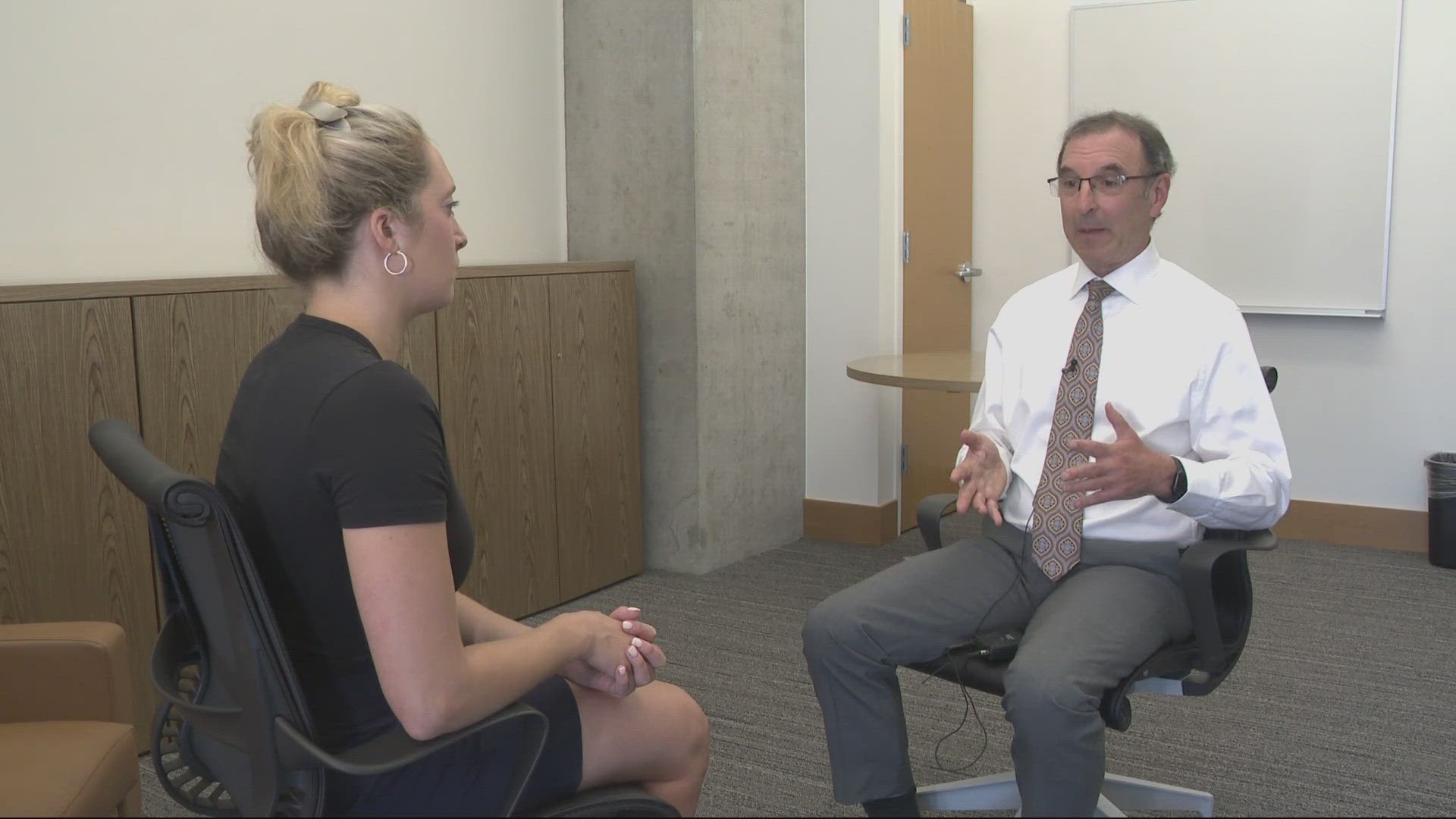PORTLAND, Ore. — When possession of hard drugs became a crime again in Oregon on Sunday, Multnomah County still had a lot to figure out, especially inside the courtroom.
The chief criminal judge for Multnomah County, Michael Greenlick, watched the new law unfold all week. He believes addiction won’t be solved inside the courtroom, adding that the county has worked to direct people away from the criminal justice system and into treatment over the years — but never with great success.
Despite that, they are stepping into a similar role again, at least for right now.
“It's really a difficult situation to try and deal with these things in the courts right now,” Greenlick said.
Under the new law, someone is caught with drugs on the streets, police check their record. If they have outstanding warrants, they go to jail. If not, they're offered "deflection," the option of treatment instead. Outreach workers then take over for police.
However, that's only happening from 8 a.m. to 8 p.m. Monday through Friday. Outside those hours, it's up to Multnomah County courts to act as temporary "deflection centers," given the county at the last-minute postponed opening an actual center. It’s scheduled to open sometime in October.
“This whole 'using the court to deflect people into deflection' thing: we all came up with that in the last week because we had to respond to the fact that it wasn't going to happen in the community,” Greenlick said.
Outreach workers now meet people arrested on weekends or at night who qualify for deflection at the court to offer them treatment. They are arrested but then released the same night and told to return to the courthouse to meet those outreach workers.
The first time that happened this week, the man didn't show up and neither did the outreach workers. A judge issued a warrant for his arrest. However, that charge wasn't supposed to happen.
“I think they had their signals crossed a little bit the first day, so there shouldn't be charges filed if they're eligible for deflection, even if they don't show,” Greenlick explained.
Instead, that man "failed deflection" and faces potential future arrest if caught with drugs again.
Greenlick points to another flaw in the court system, which was also on display this week: That’s the lack of public defenders resulting in people caught with possession who don’t qualify for deflection being released back onto the streets.
“For these drug enforcement misdemeanors, most of them are going to be released pending trial,” Greenlick said. “It’s really a significant crisis in this community. I wish people were paying more attention to it.
"Now we’re going to have, it looks to me, like a significant shortage in misdemeanor cases as well, and what could end up happening is we end up not having lawyers for people arrested for these drug possession cases, which means they can’t go forward,” Greenlick explained. A KGW crew had watched that happen to one man Tuesday afternoon.
This all begs the question: Will this new law change the cycle of addiction in Multnomah County?
Greenlick is skeptical.
“I don't know. We need a lot of services in the community, and they are trying to build those up, but to tell you the truth, somebody who is using fentanyl every day who has no place to live... Will something like this make a difference? I don't know. We'll see,” he said.
While the language in the new law is rooted in getting people into for that to work, Multnomah County needs more services, including treatment beds and public defenders.

